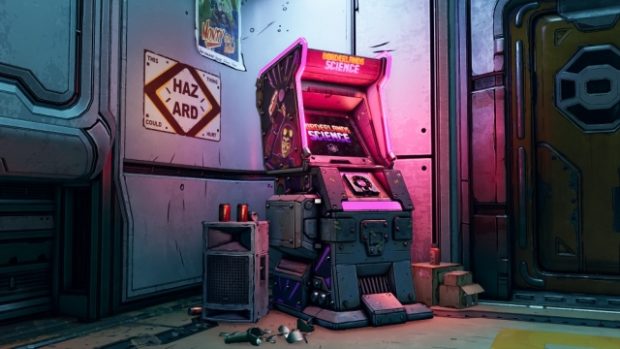‘Borderlands 3’ adds real-world scientific research mini-game

Artwork for the “Borderlands 3″citizen science game Borderlands Science. Image: Courtesy of Gearbox Software via AFP Relaxnews
Following a partnership with EVE Online in 2017, Swiss research group Massively Multiplayer Online Science (MMOS) has partnered with the video game “Borderlands 3” and, by extension, its players, to improve microbial research and help cure diseases.
The human body is home to trillions of microbes, some of which are associated with conditions like diabetes, Parkinson’s, Alzheimer’s, cancer and more. Yet the sheer number of these microbes makes it difficult for computers to sort through them unaided.
That’s where Borderlands Science comes in.
It’s a virtual arcade game within PlayStation 4, Xbox One and PC action title “Borderlands 3”, niftily introduced by Mayim Bialik, “Big Bang Theory” actress and real-world neuroscientist Ph.D.
A tile-matching puzzle, somewhat similar to “Candy Crush Saga”, “Homescapes”, “Bejeweled” or Sega’s classic “Columns”, the Borderlands Science virtual cabinet has players push stacks of icons upwards to create horizontal lines.
The idea is that by connecting those colored shapes, they make it easier for scientists to estimate the similarity between each microbe and, gradually, decode the microbiome within the human gut.
Meanwhile, inside the world of “Borderlands 3”, players are incentivized to progress with disguised DNA analysis with the promise of in-game currency they can spend on booster items for their characters.
The scheme is the result of a collaboration between MMOS, “Borderlands 3” studio Gearbox, staff at McGill University and the Microsetta Initiative at UC San Diego School of Medicine.
As well as a long-term boon for scientific research and human health, it’s a boost for Gearbox.
The previous week it was the subject of a Kotaku report about the absence of sizable royalty bonuses for staff, despite the much-celebrated success of its latest game.
Borderlands Science joins a growing number of games that are designed as citizen science tools; previous examples have included mobile applications like “BioBlox” (protein docking), “Reverse the Odds” (cancerous cells), “Sea Hero Quest” (dementia), “NeMO-Net” (coral reef classification) and “Foldit” (protein folding).
MMOS differs in its approach, in that the group was created “to connect scientific research and video games as a seamless gaming experience,” hence the collaborations with “Borderlands 3” and EVE Online. RGA
RELATED STORIES:
‘Borderlands 3’: PC edition Epic exclusive until April 2020